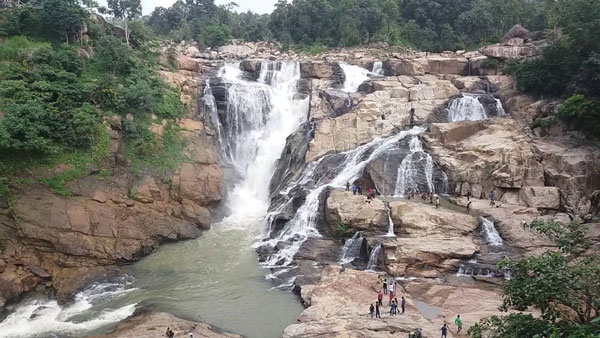

Project 1: Rural Cooling Need Assessment: Solutioning of Community Cooling Hub Design
 In a rapidly warming world, sustainable cooling is directly related to the protection of fresh and nutritious food, medicines, and the population from extreme heat for work conditions, the economic productivity of the working population, and income generation. This study aimed to understand how rural communities are meeting their nutrition, livelihood, health, living space, and mobility requirements regarding the role of cooling. We selected three villages as case studies in Maharashtra, India and conducted household surveys, in-depth interviews of key informants, focus group discussions (FGDs), and social mapping building typology study to understand sector-wise cooling demands, the quantum being addressed presently, losses due to the absence or partial fulfilment of cooling needs and different ways through which the community is coping with these demands in the present to meet their economic, food, health-related and comfort wellbeing. The objective was to assess the rural community cooling to propose a community cooling hub (CCH) framework that could be economically, environmentally, and socially sustainable for the three villages. Community Cooling Hub (CCH) is proposed by the University of Birmingham as a more sensible systems-level approach which has the potential to meet community cooling needs in a more efficient, affordable and sustainable way. Our study showed that agriculture, dairy, buildings (domestic and commercial), and healthcare require cooling intervention in the studied communities. Based on the needs assessment for cooling, we proposed a CCH framework to provide cooling solutions in an integrated system for rural contexts. An integrated
In a rapidly warming world, sustainable cooling is directly related to the protection of fresh and nutritious food, medicines, and the population from extreme heat for work conditions, the economic productivity of the working population, and income generation. This study aimed to understand how rural communities are meeting their nutrition, livelihood, health, living space, and mobility requirements regarding the role of cooling. We selected three villages as case studies in Maharashtra, India and conducted household surveys, in-depth interviews of key informants, focus group discussions (FGDs), and social mapping building typology study to understand sector-wise cooling demands, the quantum being addressed presently, losses due to the absence or partial fulfilment of cooling needs and different ways through which the community is coping with these demands in the present to meet their economic, food, health-related and comfort wellbeing. The objective was to assess the rural community cooling to propose a community cooling hub (CCH) framework that could be economically, environmentally, and socially sustainable for the three villages. Community Cooling Hub (CCH) is proposed by the University of Birmingham as a more sensible systems-level approach which has the potential to meet community cooling needs in a more efficient, affordable and sustainable way. Our study showed that agriculture, dairy, buildings (domestic and commercial), and healthcare require cooling intervention in the studied communities. Based on the needs assessment for cooling, we proposed a CCH framework to provide cooling solutions in an integrated system for rural contexts. An integrated
Published Article
Rural Cooling Needs Assessment towards Designing Community Cooling Hubs: Case Studies from Maharashtra, India
https://www.mdpi.com/2071-1050/13/10/5595
Report
Established as a Centre of Excellence of the Ministry of Environment, Forest & Climate Change, Government of India.